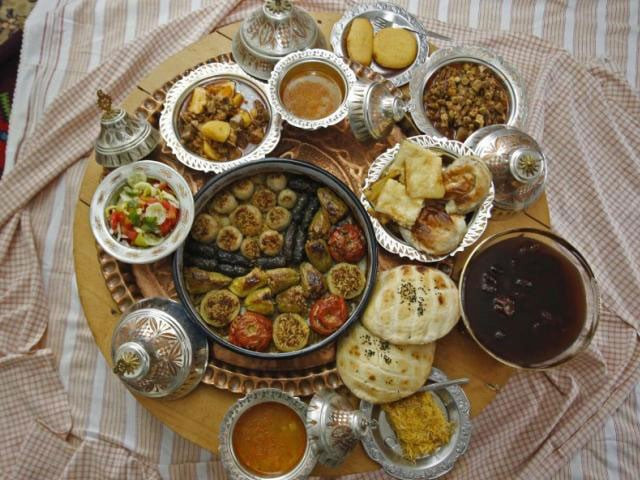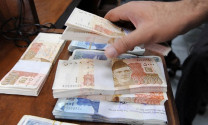When food businesses eat up a chunk of tax revenue
Sector constitutes a big part of undocumented economy, says former FBR member inland revenue

PHOTO: REUTERS
Changing society habits as more and more people opt to dine out, ease of giving orders online, improving income of the middle class and love for food, besides the markedly satisfactory law and order situation, are the factors that have turned the country into a great place for people desirous of venturing into food business.
At weekends, a huge crowd of food lovers are seen outside popular restaurants and food streets in many cities of the country, even small ones.
According to a research report of Euromonitor International, consumerism in Pakistan is growing at a rapid pace and its retail market is expected to rise at an annual rate of 8.2% from 2016 to 2021.
The report says disposable income of Pakistanis has doubled since 2010 and the middle class is estimated to have surpassed that of the UK and Italy over the period.
Food scarcity: ‘Sellers of adulterated milk the real parasites’
According to Islamabad-based think tank, the Jinnah Institute, after facing terrorism for more than a decade, the security situation in Pakistan is improving, encouraging more people to dine at hotels.
“The trend of food streets is developing in Pakistan which helps new restaurants to stand on their feet easier than before; when people see a new restaurant, they want to try its food,” said Muhammad Umer, owner of Charcoal Tea, situated in PECHS block 2.
More and more restaurants are opening with modern ideas as businessmen learn from foreign experience.
“Pakistan has almost two-thirds of its 207 million people which are aged below 30 years who love to dine out. This, along with other factors, sparks a huge demand for delicious food with no big barrier to setting up such businesses,” said Abdul Wali Khan, who has set up 4 Season Food, a fast-food and Pizza restaurant, in Landhi. “We have to bear only fixed cost of establishing a food business; it needs more knowledge and expertise than investment in terms of money.”
For him, it has become easier to produce fast food with the help of ingredients being produced by many companies like spice mixes and sauces.
A quality fast-food business can be set up for just around Rs600,000 whereas its operating cost stands very low since the restaurant does not need to keep a large stock of goods like many other businesses.
“If we set aside the fixed cost of a restaurant, the variable cost is only 30%, which means it can earn a gross profit of at least 70% ie a sandwich produced at a cost of Rs30 will be sold for Rs100,” said Sikander Mahmood, CEO of Movenpick Hotel. “Profit margins can rise to more than 100% once the business is settled.”
Though big restaurants along with some medium-sized outlets pay taxes to the Federal Board of Revenue (FBR), small restaurants are rarely caught.
The growing number of food outlets and restaurants should have helped the FBR widen the tax net. However, contrary to that, Pakistan’s tax base has shrunk 17% in the 2016 tax year, according to the FBR’s Active Taxpayer List.
“Though profit margins are high, the food business is one of the four sectors which constitute a huge chunk of Pakistan’s massive undocumented economy; educational institutions, private health facilities and real estate are the other three; all remain active even in times of recession,” commented a former FBR member inland revenue who asked not to be named.
“Even most of the restaurants which are registered with the sales tax department don’t deposit the tax collected from customers,” said a former FBR officer.
“I have noticed many a time that restaurants mention sales tax on the bill, but they don’t show the sales tax registration number, which a common man cannot catch, therefore, a major chunk of tax never reaches the government exchequer,” he said.
43% Pakistanis remain ‘food insecure’
He also hit out at big hotels, saying they mostly underreported their income and paid less-than-required sales and income taxes.
He suggested that a central tax collecting system should be introduced for restaurants like the electronic price tag system in large departmental stores, which showed how many things had got out of the inventory and sold. “Through this system, the FBR can get information every time a customer pays his bill,” he said.
The writer is a staff correspondent
Published in The Express Tribune, November 13th, 2017.
Like Business on Facebook, follow @TribuneBiz on Twitter to stay informed and join in the conversation.



















COMMENTS
Comments are moderated and generally will be posted if they are on-topic and not abusive.
For more information, please see our Comments FAQ